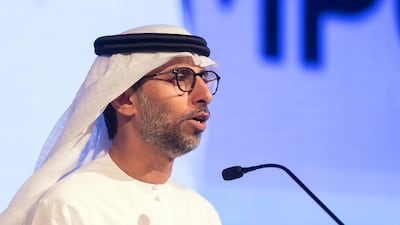Opec+ will convene on July 1 and 2, ending a month of uncertainty within the alliance over the timing of the group's annual summer meeting.
Opec+, as the alliance undertaking market supply corrections is known, was earlier scheduled to meet on June 25 and 26 in Vienna to review their current production cut pact. However, the alliance’s largest non-member Russia wanted to move the meeting to July.
Escalating geopolitical tensions between Opec's Gulf Arab members and Iran over attacks on tankers carrying crude from Saudi Arabia and the UAE, which the US has blamed on Tehran, led to further disagreements over the meeting.
An Opec delegate cited by Bloomberg had said on Tuesday that the group’s president, Venezuelan energy minister Manuel Quevedo, managed to get the different parties to agree to meet on July 1 and 2.
The consensus within the group, which has been collectively drawing down 1.2 million bpd of supply from the markets since January, is to stick to the current levels of cuts, the UAE energy minister Suhail Al Mazrouei told reporters in Abu Dhabi on Wednesday.
"We’re looking at conformity levels, so I don’t think we’re changing that,” he said.
"We have seen a buildup in inventories … and that would require an extension. I don’t think it’s difficult to come to that conclusion from anyone watching the market, so I’m not expecting a very difficult process in approving the extension.”
Trade tensions between the US and China has factored into global demand, while rising US inventories outweighed any geopolitical risk that could be priced into the oil markets, noted the minister.
"There is of course the trade tensions between the US and China and that has a key role to play in driving the demand and we hope that the upcoming talks between the two presidents during the G20, would resolve from the market," he said.


